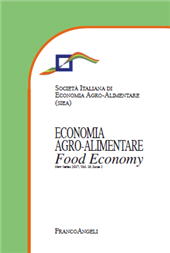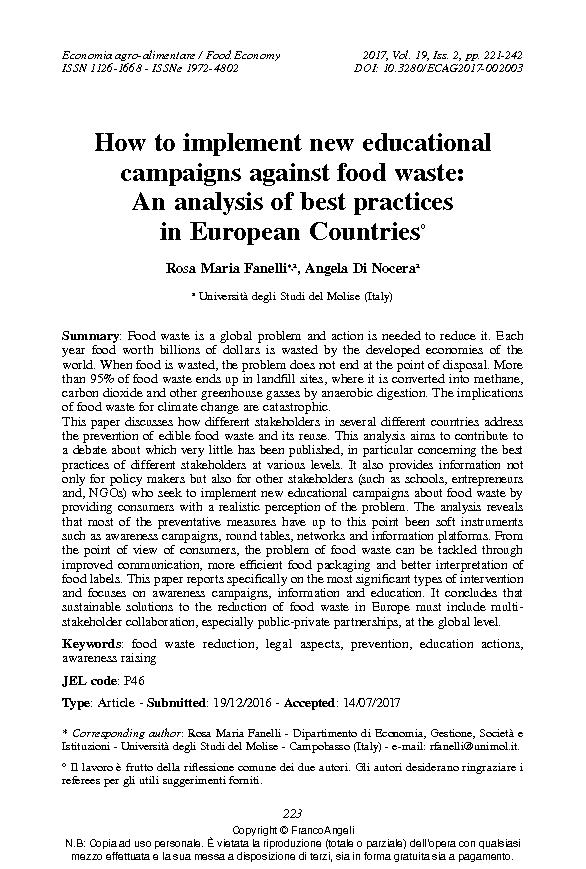How to implement new educational campaigns against food waste : An analysis of best practices in European Countries
223-244 p.
Food waste is a global problem and action is needed to reduce it. Each year food worth billions of dollars is wasted by the developed economies of the world. When food is wasted, the problem does not end at the point of disposal. More than 95% of food waste ends up in landfill sites, where it is converted into methane, carbon dioxide and other greenhouse gasses by anaerobic digestion. The implications of food waste for climate change are catastrophic. This paper discusses how different stakeholders in several different countries address the prevention of edible food waste and its reuse. This analysis aims to contribute to a debate about which very little has been published, in particular concerning the best practices of different stakeholders at various levels. It also provides information not only for policy makers but also for other stakeholders (such as schools, entrepreneurs and, NGOs) who seek to implement new educational campaigns about food waste by providing consumers with a realistic perception of th
e problem. The analysis reveals that most of the preventative measures have up to this point been soft instruments such as awareness campaigns, round tables, networks and information platforms. From the point of view of consumers, the problem of food waste can be tackled through improved communication, more efficient food packaging and better interpretation of food labels. This paper reports specifically on the most significant types of intervention and focuses on awareness campaigns, information and education. It concludes that sustainable solutions to the reduction of food waste in Europe must include multistakeholder collaboration, especially public-private partnerships, at the global level. [Publishers' text].
Forma parte de
Economia agro-alimentare : XIX, 2, 2017-
Artículos del mismo número (disponibles individualmente)
-
Información
Código DOI: 10.3280/ECAG2017-002003
ISSN: 1972-4802
KEYWORDS
- Food waste reduction, legal aspects, prevention, education actions, awareness raising



